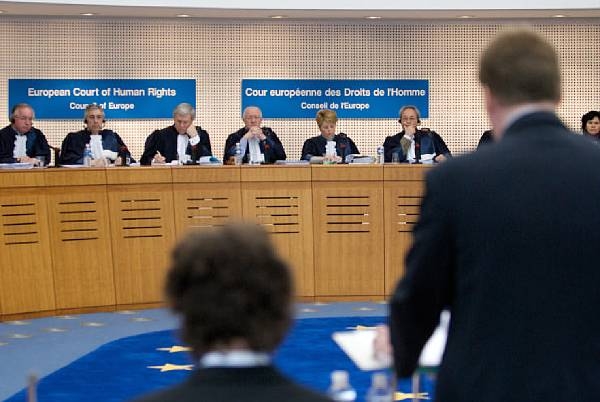European Court of Human Rights: Case Cioffi v. Italy - Inhuman and Degrading Treatment of Protesters following the 2001 Anti-Globalisation Demonstrations in Naples

On 5 June 2025, the Chamber of the European Court of Human Rights (ECtHR) ruled on the case of Cioffi v. Italy (No. 17710/15) concerning a violation of Article 3 (prohibition of inhuman or degrading treatment) of the European Convention on Human Rights (ECHR). In the circumstances of the case, during anti-globalization demonstrations in Naples in 2001, Cioffi , an Italian applicant, was taken into custody, where he was subjected to physical and psychological violence by the police officers. Following an investigation, several police officers were charged with kidnapping, abuse of power, criminal coercion, and causing bodily harm to Cioffi and other participants. The applicant joined the proceedings as a civil claimant.
The Naples District Court found that the detainees were subjected to “grave conduct” (gravissime condotte), including: being forced to walk in a corridor surrounded by police officers who took turns slapping, kicking, spitting on and verbally abusing them; being forced to kneel with their hands behind their heads, being forced to remain silent at all times and not being allowed to communicate with their lawyers or inform their families about their situation; being beaten and subjected to various forms of physical violence, threats and verbal abuse; and being prevented from eating, drinking or using the toilet.
The District Court found that Cioffi was beaten several times, including when he was kneeling with his hands behind his head. The applicant identified himself as a trainee lawyer and requested information about the reasons for his detention without formal arrest and for physical violence. In response, officers mocked him by calling him “l’avvocatino” (“the little lawyer”) and stated that they knew where he lived.
Although the District Court initially found the offences to be “particularly unacceptable” and sentenced ten officers to two years and eight months in prison, with their suspension from service, the proceedings were later discontinued due to the expiry of the statutory limitation periods. Fourteen other police officers appealed their convictions, and in January 2013, the Naples Court of Appeal quashed the convictions for kidnapping and their suspension from service, citing the expiration of the statute of limitations. Subsequently, in 2015, the Court of Cassation upheld this decision, resulting in most of the offences being dismissed as time-barred, except in the case of three police officers who had applied for a waiver of the statute of limitations.
Cioffi alleged violations of Article 3 (prohibition of inhuman or degrading treatment), Article 5 (right to liberty and security), and Article 13 (right to an effective remedy) of the ECHR, on the grounds that he had been subjected to ill-treatment in police custody and that the expiry of the statute of limitations had resulted in impunity for those responsible.
The ECtHR concluded that the applicant had been subjected to inhuman and degrading treatment by the police.
Referring to its earlier ECtHR’s judgment in the case of Cestaro v. Italy (No. 6884/11, judgment of 7 April 2015; see Yearbook 2016, p. 255, and here), the ECtHR stated that the application of legal mechanisms such as the statute of limitations capable of preventing the punishment of persons responsible of operating measures incompatible with the ECtHR’s case-law on Article 3 of the ECHR, can engage the responsibility of the State. In this case, the expiration of the limitation period had prevented the establishment of criminal liability and punishment of those responsible.
The ECtHR therefore found that Italy had failed to conduct an effective investigation into Cioffi’s allegations, either to punish the perpetrators or to prevent future ill-treatment. It concluded that Italy had violated Article 3 of the ECHR both in respect of its substantive content (the ill-treatment of Cioffi) and of its procedural dimension, as the subsequent investigation proved to be ineffective.
Having addressed the main legal issues under Article 3 of the ECHR, the ECtHR held that there was no need to examine the alleged violations of Articles 5 and 13 separately.
The ECtHR ordered Italy to pay Cioffi 30,000 euros in just satisfaction for non-pecuniary damage.

